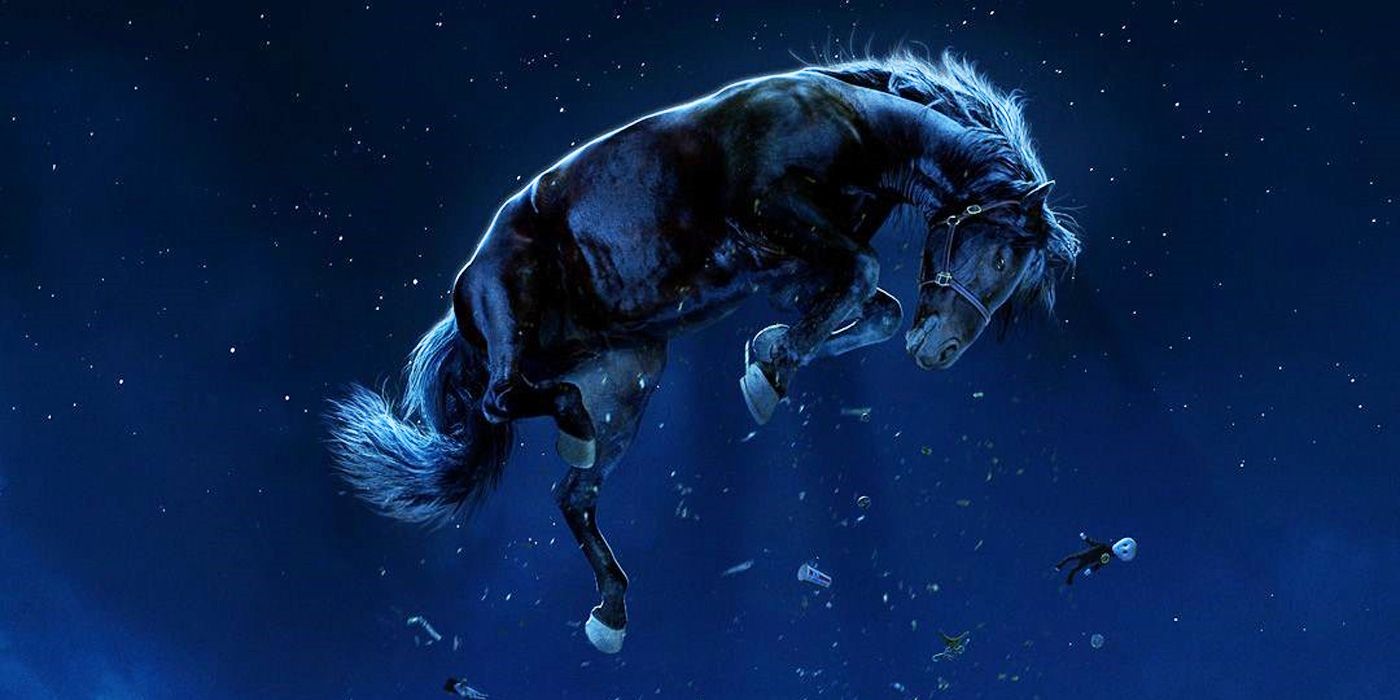Jordan Peele’s “Nope” emerges not merely as a cinematic experience rife with suspense and mystery but also as a profound exploration of the relationship between humans and animals, encapsulating themes that resonate with the pressing concerns of animal activism. At first glance, the film’s narrative may seem convoluted, interweaving a tale of extraterrestrial encounters with an undercurrent of horror. However, beneath its thrilling exterior lies a nuanced examination of animal cruelty, exploitation, and the ethical responsibilities humans hold towards non-human creatures.
The film’s backdrop is set in an expansive, arid landscape, a setting that serves as an allegory for the broader environmental issues faced by both animals and their habitats. The characters, siblings Emerald and OJ Haywood, navigate this terrain in their quest for the extraordinary—a journey steeped in the desire to capture and control. This pursuit of spectacle mirrors humanity’s often exploitative relationship with the animal kingdom. From circuses that parade animals for entertainment to the sensationalized capture of exotic wildlife, the film’s narrative draws attention to the fundamental ethical question: at what cost do we seek our entertainment?
Throughout the film, Peele ingeniously employs the motif of spectacle to underscore this theme. The central premise revolves around capturing a UFO, which, in essence, symbolizes the ultimate spectacle. Yet, it is crucial to recognize that this pursuit comes at a grave expense. In the horror genre, the act of watching becomes a form of voyeurism—a passive consumption of disturbing realities. This voyeurism parallels the ways in which wildlife is often commodified. Animals become mere objects of our entertainment, stripped of their autonomy and subjected to systemic cruelty.
In “Nope,” one of the most poignant metaphors is the relationship between the UFO and the horses that populate the ranch. The titular “Nope” signifies a refusal to engage in the commodification of their existence. Horses, often seen as noble, strong beings, are not merely props within the film’s narrative; they embody the tension between the Harsh realities of their treatment and the reverie of human appreciation. The characters’ evolving understanding of the horses’ plight reflects a broader realization that exploitation, whether of animals or marginalized community members, is inherently damaging, not only to those who suffer but also to the exploiters themselves.
The film further deepens its commentary on animal cruelty through its subtle, yet evocative imagery. Peele’s incorporation of the seemingly supernatural serves as an allegorical device, inviting viewers to question the unnaturalness of humans’ relationship with the natural world. Just as the alien presence disrupts the balance of the characters’ lives, the disregard for animal well-being interrupts the delicate balance of ecosystems and ethical responsibility. The alien, an unpredictable and fearsome entity, ultimately represents the unintended consequences of humanity’s relentless quest for dominion.
As the plot progresses, the audience witnesses the characters grappling with their own complicity in this exploitation. Each character serves as a reflection of society’s varying degrees of awareness and accountability in the face of animal cruelty. OJ, for instance, exhibits a profound sense of empathy towards the horses, contrasting sharply with the cavalier attitudes of others who prioritize spectacle over ethical consideration. This character dynamic resonates deeply, illustrating the transformative power of awareness. If one recognizes that the exploitation of animal lives compromises not only their dignity but also our own humanity, the journey towards change becomes imperative.
Moreover, Peele challenges the trope of ownership and control over animals. The very act of capturing footage of the UFO turns from a mere spectacle into an ethical dilemma. The film posits that our desire to dominate and manipulate often leads to dire consequences, encapsulated by the fateful events that unfold. The idea is unmistakable: oppression breeds tragedy, whether for the oppressed or the oppressor. As viewers engage with the shocking revelations and the visceral narratives unfolding on-screen, it is impossible not to draw parallels to our real-world practices of exploitation and surveillance, engaging in an uncomfortable, yet necessary, introspection.
It is essential to recognize that “Nope” does not merely present an issue; it invites a discourse on accountability. The film meticulously underscores the importance of advocacy, emphasizing that silence in the face of brutality perpetuates a cycle of violence. Thus, the imperative for compassion towards all living beings is a central tenet. Peele’s cinematography invites empathy, urging audiences to heighten their sensitivity towards the suffering of creatures often rendered invisible by a society fixated on spectacle and sensation.
The thematic elements of “Nope” culminate in an arduous yet essential story about our intimate connections with the natural world. Through its haunting visual storytelling and intricate character development, the film highlights the urgent necessity of respect between humans and animals. The visceral engagement with questions of animal welfare propels “Nope” beyond the traditional boundaries of horror into a realm of profound ethical reflection. As a contemporary narrative steeped in philosophy, it articulates an urgent call to recognize the sanctity of life in all its forms and the responsibilities that accompany our shared existence on this planet.
In conclusion, Peele’s “Nope” delivers an incisive critique of human behaviors towards animals under the guise of entertainment. It confronts viewers with uncomfortable truths while championing a perspective that applauds agency and respect for all living beings. The film serves as a microcosm for the larger conversation on animal activism, sheltering within its thrilling plotline a powerful message urging a reevaluation of purpose drives our relationships with animals. Through its intricate layers of meaning, “Nope” becomes essential viewing in the discourse surrounding animal rights and ethical treatment, making it a film not merely of the moment but one with lasting implications for future generations.








